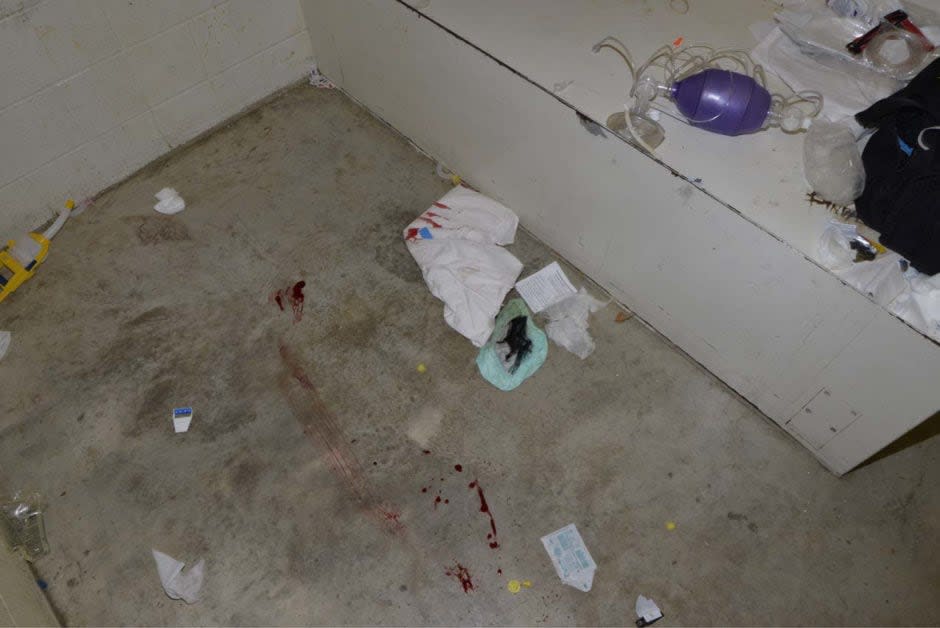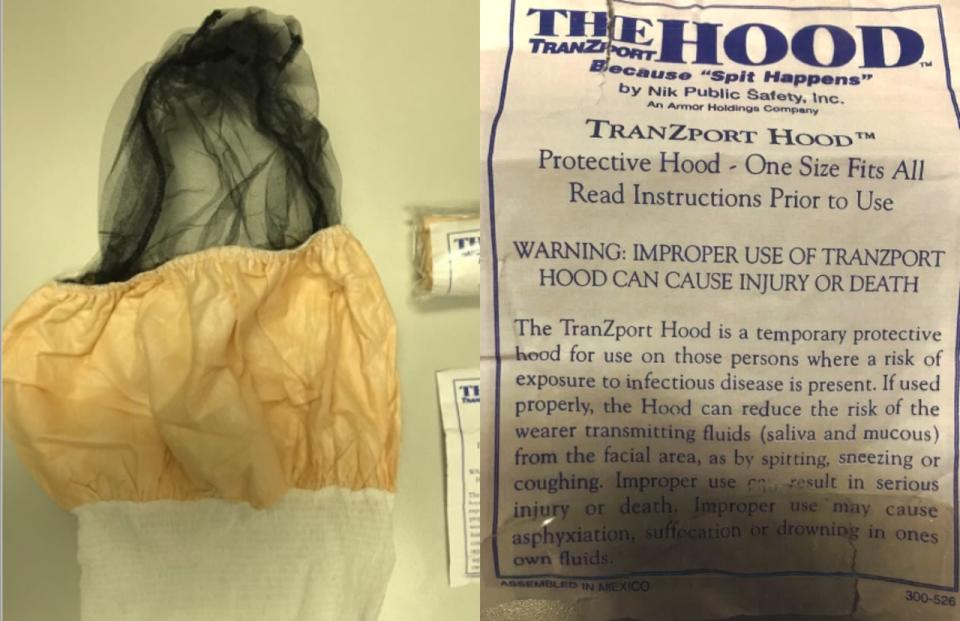Guard reveals 60 policy breaches in Faqiri death, says policies often followed only when 'convenient'

A jail guard directly involved in restraining Soleiman Faqiri on the day of his death says an internal investigation found guards carried out 60 breaches of policy that day, adding policies were often followed only when "convenient."
Dave Surowiec told jurors he didn't notice any policies being breached while Faqiri was restrained at the Central East Correctional Centre — but he later learned of dozens of breaches through an internal investigation from the Correctional Services Oversight and Investigations Office, which has not yet been made public.
"In my experience, policy and procedures are great things but operationally they're not always adhered to," Surowiec said jurors at the inquest into Faqiri's 2016 death.
"Isn't it a bit like the wild wild West then?" coroner's counsel Prabhu Rajan asked Surowiec.
"It's an enormous problem," Surowiec answered, citing staffing levels and operational demands as reasons why policies might not be followed.
Jurors heard Surowiec joined in restraining Faqiri at the Central East Correctional Centre after an emergency call for all available officers, known as a code blue. Once there, someone called out for a spit hood. Surowiec went to find one and by the time he returned, was told guards already had one.
Surowiec said he was then asked to replace a guard who was exhausted from the restraint and he took charge of restraining Faqiri's right arm. By this point, Faqiri was face down, wearing a spit hood and leg irons, and had been pepper sprayed twice without being decontaminated.

Soleiman Faqiri, 30, died in segregation at Central East Correctional Centre. The coroner's inquest into his death is in its final week. (Submitted by Yusuf Faqiri)
Surowiec testified he was trained that handcuffing a person behind their back while face down could risk cutting off their air supply, but that he was instructed to do so and didn't question the move.
As CBC News previously reported, Ontario's use of force policy for jails states: "Staff must ensure that an inmate is not placed on his/her stomach or in any position that could result in positional asphyxia while wearing the spit hood."
It also says an inmate must be "properly decontaminated" when pepper spray is used, and staff must ensure an inmate "is never left unattended while wearing the spit hood."
Guard noticed Faqiri 'tick' at outset
In the aftermath of Faqiri's death, Surowiec was dismissed from his position but was later reinstated, according to court documents. Speaking to the jury Monday, he said he suffered greatly following Faqiri's death, experiencing depression and post-traumatic stress disorder, and that he is currently off the job.
Jurors heard Surowiec worked in the admissions and discharge area of the jail when Faqiri first arrived there on Dec. 5.
Surowiec processed Faqiri's paperwork and performed his strip search. Right from the beginning, he said, he could tell Faqiri may have some kind of mental health issue.
"I'd almost describe it as having a tick. He was jumpy. You could tell he was having trouble following my direction."
At no point over the next 11 days was Faqiri seen by a psychiatrist or taken to a hospital for treatment.
Jurors have previously heard that the jail's psychiatrist was on vacation at the time, that there was a fractured relationship with the nearby Ross Memorial Hospital, and that neither jail or health care staff believed they could send him to the emergency room, despite policy.
Rajan pressed Surowiec on what the guards restraining Faqiri were looking for in moving his handcuffs to his rear. Jurors heard Faqiri's hands were momentarily free while guards removed his handcuffs to reposition them behind his back and that he didn't use the opportunity to jump up or fight back.

A label on the packaging of the particular spithood used on Soleiman Faqiri before his death states: "Warning: Improper use of TranZport Hood can cause injury or death," the label reads. "Improper use may cause asphyxiation, suffocation or drowning in one's own fluids." (Court documents)
Surowiec responded that guards were seeking "compliance."
Asked if guards' use of force training distinguishes between someone withe mental illness or without, he said, "The training doesn't differentiate."
Surowiec also said he was never taught that a person with a mental health issue might not understand instructions to them.
Asked if that was a problem, he replied: "It would be like trying to speak English to someone who doesn't speak English."
Manager testifies she knew risk of position
Surowiec's testimony echoed that of manager Dawn Roselle, who testified at the inquest Friday.
Roselle, who was fired in the aftermath of Faqiri's death, told jurors placing an inmate face down with handcuffs behind their back is "a higher risk" position as it can affect their breathing.
Still, Roselle said, she authorized the move in an attempt to "safely disengage the staff, to reassess and to provide inmate Faqiri care."
Roselle testified she arrived at the incident while it was already underway and wasn't told Faqiri had been covered with as spit hood or that he had been pepper sprayed.
During a lawsuit following Faqiri's death, Roselle acknowledged the combination of tactics used on him that day posed a "triple threat" for asphyxia.
At the time of his death, Faqiri, who suffered from schizoaffective disorder — a combination of schizophrenic and bipolar symptoms — was awaiting a medical evaluation at the Ontario Shores Centre for Mental Health Sciences. He had been charged with aggravated assault, assault, and uttering threats following an altercation with a neighbour, but had not been convicted of any crime.
His cause of death, previously deemed unascertained, was later deemed to be restraint in a face-down position and injuries from his struggle with guards.
No one was ever charged in his death.


